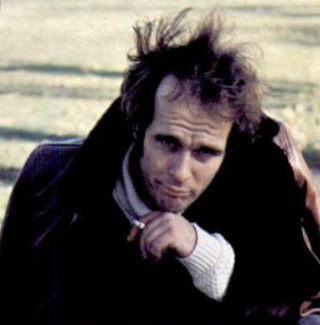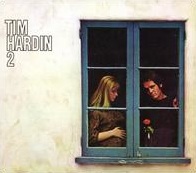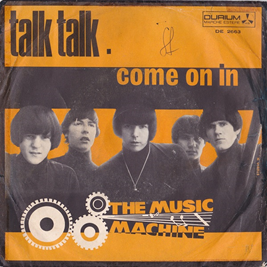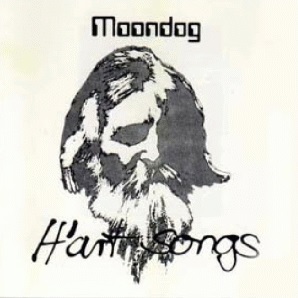
Louis Thomas Hardin, known professionally as Moondog, was an American composer, musician, performer, music theoretician, poet and inventor of musical instruments. Largely self-taught as a composer, his prolific work widely drew inspiration from jazz, classical, Native American music which he had become familiar with as a child, and Latin American music. His strongly rhythmic, contrapuntal pieces and arrangements later influenced composers of minimal music, in particular American composers Steve Reich and Philip Glass.

James Timothy Hardin was an American folk and blues songwriter. As well as releasing his own material, several of his songs, including "If I Were a Carpenter" and "Reason to Believe", became hits for other artists.

Prestige Records is a jazz record company and label founded in 1949 by Bob Weinstock in New York City which issued recordings in the mainstream, bop, and cool jazz idioms. The company recorded hundreds of albums by many of the leading jazz musicians of the day, sometimes issuing them on subsidiary labels. The company's began releasing jazz records in 78 and 45 RPM formats in 1950. The Prestige label includes the 13000 and 25000 cat# series. Prestige International was a sub-label of Prestige, active from 1960 to 1969, that mostly released folk music. In 1971, the company was sold to Fantasy, which was later absorbed by Concord.

Saxophone Colossus is the sixth studio album by American jazz saxophonist Sonny Rollins. Perhaps Rollins's best-known album, it is often considered his breakthrough record. It was recorded monophonically on June 22, 1956, with producer Bob Weinstock and engineer Rudy Van Gelder at the latter's studio in Hackensack, New Jersey. Rollins led a quartet on the album that included pianist Tommy Flanagan, bassist Doug Watkins, and drummer Max Roach. Rollins was a member of the Clifford Brown/Max Roach Quintet at the time of the recording, and the recording took place four days before his bandmates Brown and Richie Powell died in a car accident on the way to a band engagement in Chicago. Roach appeared on several more of Rollins' solo albums, up to the 1958 Freedom Suite album.

Coltrane Plays the Blues is an album of music by jazz musician John Coltrane, released in July 1962 on Atlantic Records. It was recorded at Atlantic Studios during the sessions for My Favorite Things, assembled after Coltrane had stopped recording for the label and was under contract to Impulse Records. Like Prestige Records before them, as Coltrane's fame grew during the 1960s, Atlantic used unissued recordings and released them without either Coltrane's input or approval.

Miles: The New Miles Davis Quintet is a studio album by jazz musician Miles Davis which was released in April 1956 through Prestige Records. It is the debut record by the Miles Davis Quintet, and generally known by the original title Miles as indicated on the cover.
Bob Weinstock was an American record producer best known for his label Prestige Records, established in 1949, which was responsible for many significant jazz recordings during his more than two decades operating the firm.

Tim Hardin 1 is the debut album by folk artist Tim Hardin, released in 1966 on Verve Records.

Tim Hardin 2 is the second album by folk artist Tim Hardin, released in 1967.

If I Were a Carpenter is an album by American singer Bobby Darin, released in 1966. It was a significant change in direction for Darin considering his previous album was a collection of show tunes.

The Best of John Fahey 1959–1977 is a compilation album by American fingerstyle guitarist and composer John Fahey, released in 1977. The songs are collected from four of Fahey's dozen or so releases up to that point.

John Fahey Visits Washington D.C. is an album by American fingerstyle guitarist and composer John Fahey, released in 1979.

Sonny Rollins Plus 4 is a jazz album by Sonny Rollins, released in 1956 on Prestige Records. On this album Rollins plays with the Clifford Brown/Max Roach Quintet. The album was the last recording including pianist Richie Powell and Brown, as both died in a car accident three months later.

Moondog is an album by the American composer Moondog, released by Columbia Masterworks Records on October 1, 1969. The album was made on the initiative of the producer James William Guercio and recorded at Columbia's main studio with Moondog conducting 50 musicians. It consists of compositions written by Moondog in the 1950s and 1960s as he moved from jazz conventions into becoming a classical composer, resulting in a combination of classical influences and elements of what critics have described as minimalist music and third stream. The album includes short symphonic-styled works, canons, chaconnes and a couple of jazz-inspired tracks, one in memory of Charlie Parker.

The New Sounds is the debut solo studio album by the American jazz musician Miles Davis. Released in late 1951 as a 10-inch LP, it is his first album as a bandleader and his first full album for Prestige Records. Davis had previously contributed three tracks to the Prestige compilation LP Modern Jazz Trumpets and appeared as a sideman on the 10-inch LP Lee Konitz: The New Sounds.

The Compositions of Al Cohn is a 10" LP by jazz musician Miles Davis, recorded on February 19, 1953 and released later that year on Prestige, his third album as leader for the label, and fourth altogether, following 1952's Young Man with a Horn for Blue Note.

Sax Pax for a Sax is a collaboration album between the London Saxophonic and the blind musician, composer, and performer Moondog. The album was recorded in 1994 and released on November 28, 1997. The album marks Moondog's re-emergence into the American jazz market.

"Talk Talk" is the debut single of American garage rock band the Music Machine. It was released in November 1966, and produced the band's only Top 20 hit on the Billboard Hot 100. The song was included on their debut album, (Turn On) The Music Machine.

H'art Songs is an album by the American composer and musician Moondog, released in 1978 via Kopf.

Elpmas is an album by the American composer and musician Moondog, released in 1992 via Kopf.



















